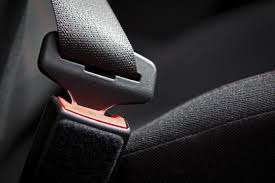Seat belts save lives. They are important safety features that protect drivers and passengers every day from serious injury and death. Unlike other safety features, like air bags or electronic stability control, seat belts aren’t automatically in use every time someone drives a car.
According to the National Highway Traffic Safety Administration (NHTSA), the risk of severe injury or death for vehicle occupants decreases by 45% when a seat belt is in use. Further, of the 22,215 people killed in car accidents in 2019 , 47% were not wearing seat belt.
Seat Belt Safety Statistics (2020)
In 2020, the national seat belt usage rate was 90%, up a staggering 20% from 2000. As a result, the NHTSA estimated 15,000 people were saved by wearing a seat belt in 2020,
However, 9% of Americans claimed to not wear a seat belt while driving short distances in 2020. The NHTSA reminds us that it’s important to buckle up for even short trips, because consistency in seat belt use is key.
Individual State Seat Belt Laws
Each state has their own seat belt law. Some states have more restrictions than others, but almost all have dedicated legislation:
- Primary enforcement laws for all occupants: 20 states—Alaska, California, Delaware, Hawaii, Illinois, Indiana, Kentucky, Louisiana, Maine, Minnesota, Mississippi, New Mexico, New York, Oregon, Rhode Island, South Carolina, Texas, Utah, Washington and Wisconsin.
- Primary front-seat belt law and secondary rear-seat belt law: Five states—Alabama, Kansas, Maryland, New Jersey and North Carolina.
- Secondary laws for all occupants: Six states—Idaho, Massachusetts, Montana, Nevada, Vermont and Wyoming.
- Primary front-seat-only belt laws: Nine states—Arkansas, Connecticut, Florida, Georgia, Iowa, Michigan, Oklahoma, Tennessee and West Virginia.
- Secondary front-seat-only belt laws: Nine states—Arizona, Colorado, Missouri, Nebraska, North Dakota, Ohio, Pennsylvania, South Dakota and Virginia.
- New Hampshire is the only state which doesn’t have a required seat belt law.
The benefits of wearing a seat belt is undisputed. Whether your state requires you to buckle up or not, it’s an important safety consideration for everyone.







